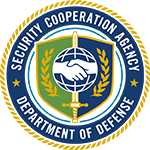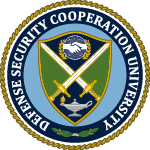The primary purpose of the Department of Defense (DOD) Security Cooperation Workforce (SCW) Certification 2.0 Program is to establish a framework to guide DOD Security Cooperation professional development. A second purpose is to provide a consistent, disciplined mechanism to ensure updates to Title 10 U.S. Code Section 384 are achieved through the appropriate education, training, and development in nine functional areas.
The most significant changes embodied in Certification 2.0 include completely new, enhanced curriculum and a requirement to properly code SCW positions in manpower systems of record to reflect these enhancements. The following changes were also made:
- Adding Capability Development as a core competency
- Replacing 5 Areas of Concentration (AOCs) with 9 Functional Areas
- Redefining the certification proficiency levels (Foundational, Practitioner, Expert, and Executive)
- Prescribing proficiency levels largely by military rank and civilian grade
Quote from Tile 10 U.S. Code Section 384
The Secretary of Defense shall carry out a program to be known as the "Department of Defense Security Cooperation Workforce Development Program" to oversee the development and management of a professional workforce supporting security cooperation programs and activities of the Department of Defense.
Program Overview
Certification 2.0, an element of the DOD Security Cooperation Workforce Development Program (SCWDP) prescribed by Title 10 U.S. Code Section 384, is required to ensure DOD personnel assigned to statutorily defined SCW positions have the competency-based training and experience necessary to carry out assigned Security Cooperation responsibilities.
The authoritative document defining Certification 2.0 requirements is the "Final Guidelines for the Department of Defense Security Cooperation Workforce Certification Program 2.0." There will be a forthcoming update to DOD Instruction 5132.15, "Implementation of the Security Cooperation Workforce Certification Program," dated May 7, 2021.
Four Elements of Certification 2.0

Quote from Final Guidelines for the DOD SCW Certification Program 2.0
Development of a professional and competent security cooperation workforce is critical to achieving our national defense objectives and requires competency-based education and training focused on job-specific knowledge, skills, and abilities.
Getting Started With Certification
SCW members should familiarize themselves with Certification 2.0 using the Certification 2.0 FAQs and identify their Security Cooperation position code, or SC Code, which includes assigned functional areas and certification proficiency levels.
SCW Coding
All Security Cooperation positions must be coded in their manpower systems of record. Proper coding ensures SCW members take the competency-based courses that best meet the requirements of their assigned positions. The Security Cooperation Position Coding Guide helps Components identify their SCW members functional areas and certification proficiency levels.
The Certification 2.0 Proficiency-Level Waiver Request process allows position owners to propose upgrades and downgrades to prescribed proficiency-levels of positions within the SCW. Additionally, Certification 2.0 Waiver Process Map illustrates the waiver process, and the Action Memo must be completed by the position owners to recommend and route a proficiency-level waiver.
SCW members should contact their supervisor or organization’s Component Certification Authority (CCA) to verify their position’s code.
Learn About the Certification 2.0 Program
As directed in updates to Title 10 U.S. Code Section 384 the Defense Security Cooperation University (DSCU) initiated a rolling start of Certification 2.0 on September 30, 2023.
Beginning October 1, 2025, SCW members are required to complete required certification courses by the following deadlines:
- Foundational-level certification: One year to complete all required Foundational-level courses. Note, all SCW members require at least Foundational level certification, including those designated in the Support Enablers functional area.
- Practitioner-level certification: Two years to complete all required Practitioner-level courses, including core requirements, primary functional area requirements, and secondary functional area requirements.
- Expert-level certification: Two years to complete all required Expert-level courses, including core requirements, primary functional area requirements, and secondary functional area requirements.
Certification 2.0 courses completed in 2024 and 2025 remain valid for Certification 2.0 credit, to include successful completion of “Beta Test” courses.
For personnel who join the SCW after October 1, 2025, their timelines will begin on the day they enter the SCW, which will be indicated by the DOD Component linking an individual to a coded SCW billet/position in the appropriate Military Department or Fourth Estate manpower system of record.
*Note, Certification 2.0 is a tailored approach according to proficiency level. For example, Practitioners do not need to complete foundational courses first, only Practitioner requirements.
Register for Courses
SCW members can map their Certification 2.0 requirements using the Certification 2.0 Pathway Fact Sheet applicable to their SC Code (Functional Area and Proficiency Level). Using the appropriate Certification 2.0 Pathway Fact Sheet, SCW members can outline the courses required, or "pathways," to achieve certification. SCW member can register for courses by logging into myDSCU and registration instructions can be found in the Certification 2.0 Student Task Aid .
For new myDSCU accounts or to reconnect to an existing account, users will need to submit an online myDSCU SAAR Form. SAAR Forms and instructions can be found at: Course Access | Defense Security Cooperation University.
Ask Questions
Many questions and additional details about Certification 2.0 requirements and answers to common questions can be found in the Certification 2.0 FAQs. The Certification 2.0 FAQs also describes the SCW competencies, outlines the nine new functional areas, explains what courses count towards certification and much more.
A few key questions answered in the FAQ document can also be found below:
Security Cooperation education, training and certification underwent a reevaluation, which allowed for refinement of the DSCU curriculum and DOD certification requirements. This assessment resulted in a completely revamped program, Certification 2.0. The new certification requirements are tailored to the SCW’s competency needs, the current strategic reality, and answer tasks set forth by Title 10 U.S. Code Section 384.
All members of the SCW—which includes members of the armed forces and civilian employees of the DOD who perform Security Cooperation functions—are required to be identified in the manpower systems of record and fully participate in the Certification Program. Security Cooperation certification is a condition of employment for civilians and an order for service members. 10 U.S.C Section 384(j) (1)-(6) defines the DOD SCW.
All Security Cooperation positions must be coded in their manpower systems of record. Proper coding will ensure SCW members take the competency-based courses that best meet the requirements of their assigned positions. DSCU has provided an updated Security Cooperation Position Coding Guide to assist the Military Departments, Fourth Estate, and other organizations with coding the SCW correctly.
The proficiency levels within Certification 2.0 are Level 1 Foundational, Level 2 Practitioner, Level 3 Expert, and Level 4 Executive. Certification 2.0 requires all members of the SCW, including new and long-standing members, to obtain appropriate professional, proficiency-based certification primarily determined by rank/grade.
Many questions and additional details about Certification requirements and answers to common questions in the Certification 2.0 FAQs document. This FAQ also includes definitions of key terms, describes the SCW competencies, outlines the nine new functional areas, explains what courses count towards certification and much more.
Functional Areas
(A) Policy and Resourcing (Aligns with previous AoC 1)
(B) Foreign Military Sales and Financing (Aligns with previous AoC 2)
(C) Security Cooperation Organization (Aligns with previous AoC 3)
(D) Support Enablers *FM, HR, Legal, IT (Aligns with previous AoC 4)
(E) Acquisition (Aligns with previous AoC 5)
(F) Building Partner Capacity/DoD Train and Equip (New)
(G) Advise, Train, and Education (New)
(H) State Partnership Program (New)
(I) Assessment, Monitoring, and Evaluation (New)
DSCU has created the Certification 2.0 Task Aid resource to assist with many myDSCU tasks. This includes navigating myDSCU accounts and records, SC Codes, viewing transcripts, registering courses, continuous learning hours tracking and much more.
For More Information
- SCW members with questions about the Certification 2.0 Program, please contact: dsca.ncr.fo.mbx.scwdd@mail.mil
- SCW members with questions about DSCU courses, please contact: dsca.ncr.dscu.mbx.cao@mail.mil
- SCW members needing assistance with DSCU course registration or myDSCU, please contact: dsca.ncr.dscu.list.registrars@mail.mil
- Security cooperation stakeholders who have a query, please contact: dsca.dscu.info@mail.mil

